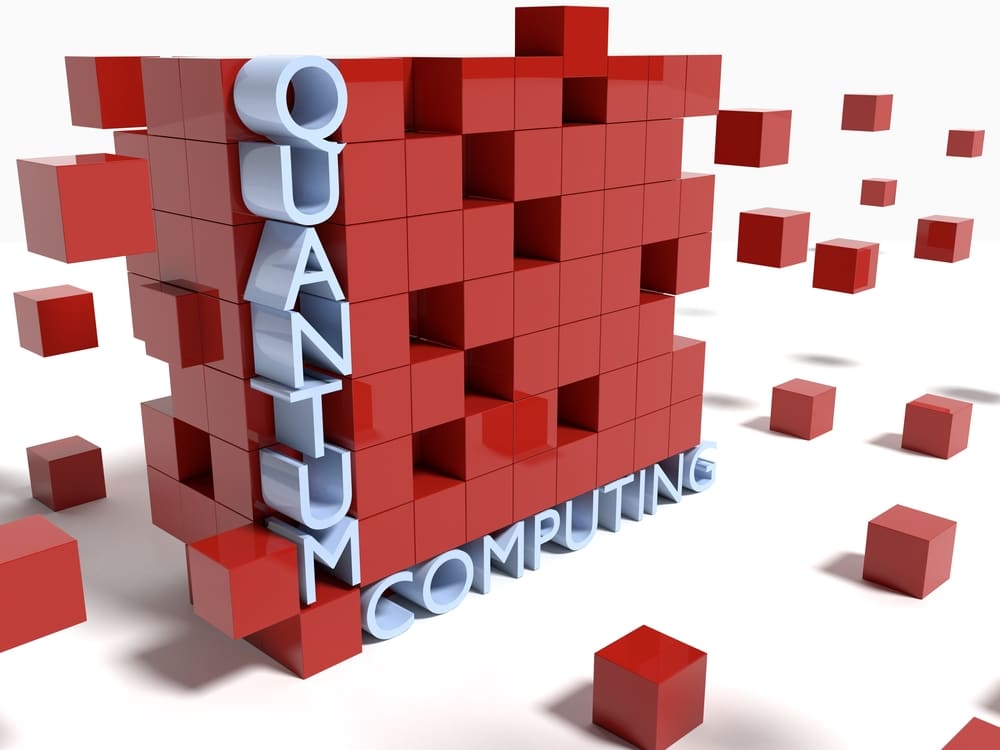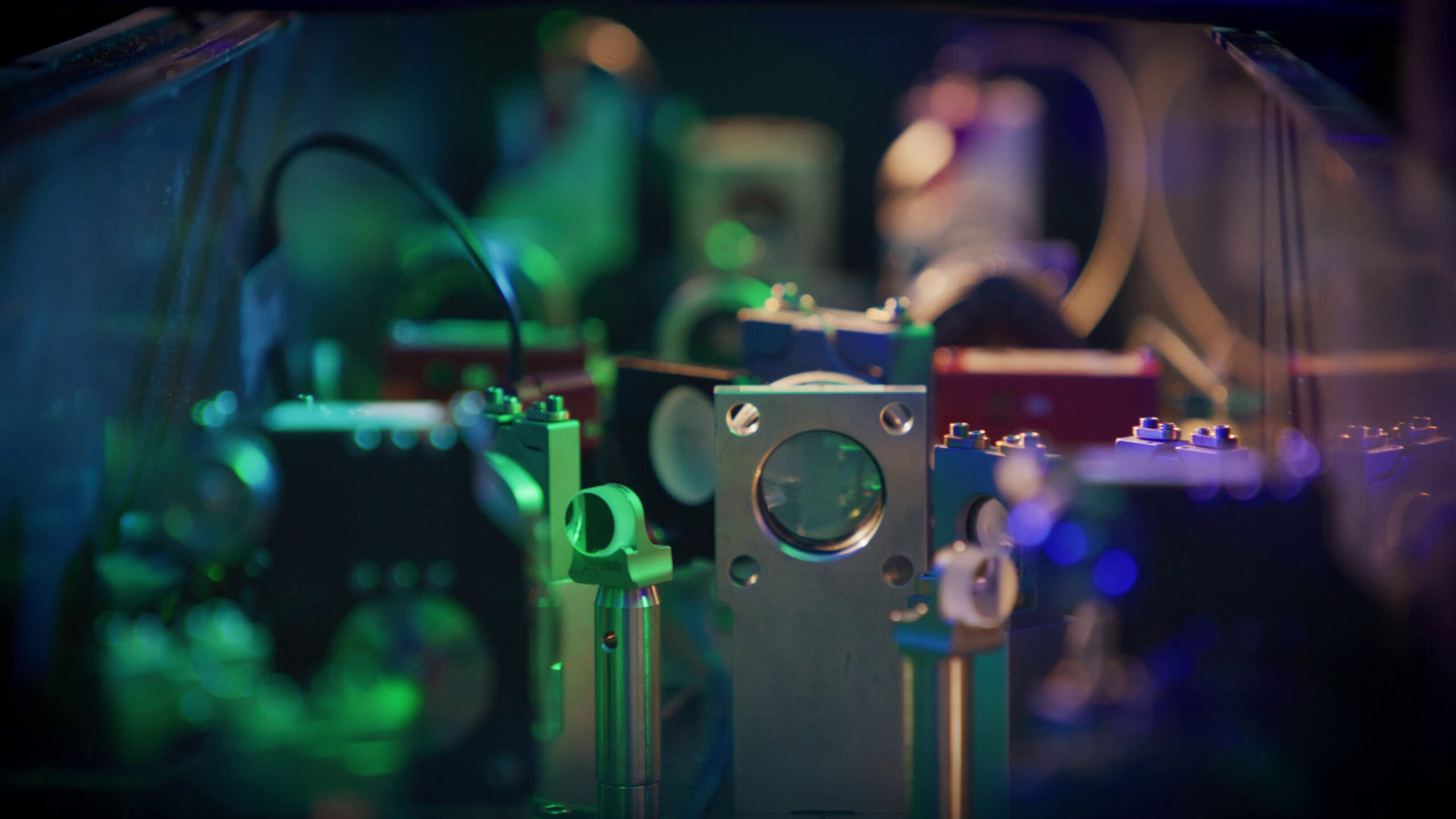
Practical quantum, encryption risk and government regulation -- quantum computing predictions for 2026
It’s the time of year again when industry executives like to peer into their crystal balls and try to predict what the future might hold.
We’ll kick off this year’s roundups with a look at quantum, something which has been hovering on the edge a major breakthrough for a few years now but, so far, has always seemed to be just out of reach from a commercial perspective. Is that set to change in 2026?

The future of encryption in a post-quantum world
As quantum computing speeds edge closer to practical use, the ‘harvest now, decrypt later’ approach is already in motion with adversaries collecting encrypted data today, anticipating they'll be able to crack it tomorrow. But is enough being done to prevent it?
New research from Forescout highlights the urgent need for organizations to prepare for a future where quantum-capable adversaries can break widely used cryptographic protocols.

Quantum solution aims to secure communication using satellites
Today is World Quantum Day -- which probably means that it simultaneously both is and isn't. Seriously though, we're used to hearing dire warnings about how quantum computing threatens encryption and private communication, but of course it can also be part of the solution.
A new alliance between Partisia, a leader in multiparty computation (MPC), Squareroot8, a provider of quantum-safe communication solutions and NuSpace, a company specializing in IoT connectivity services and Satellite-As-A-Service wants to place a Quantum Random Number Generator (QRNG) on a satellite in space.

Microsoft’s Majorana 1 quantum chip could break encryption and expose your data to hackers
Microsoft is moving closer to quantum computing supremacy with the arrival of its new Majorana 1 chip, a development which could potentially have a far-reaching impact on cybersecurity. While the Windows-maker touts this as progress, the reality is far more concerning. The encryption that protects banking transactions, government data, and personal communications could soon be worthless.
Microsoft's advancement comes down to Microsoft’s new topoconductor material, which enables a type of quantum computing that scales far beyond anything possible today. “We took a step back and said ‘OK, let’s invent the transistor for the quantum age. What properties does it need to have?’” said Chetan Nayak, Microsoft technical fellow. “And that’s really how we got here -- it’s the particular combination, the quality and the important details in our new materials stack that have enabled a new kind of qubit and ultimately our entire architecture.”

Enterprise tech buyers reveal their 2025 spending priorities
A new report from Crane Venture Partners looks at the priorities of senior executives who collectively influence $3–$4 billion in annual technology spending.
Respondents include leaders from major companies such as Microsoft, Bloomberg, Procter & Gamble, Kohl's, Arm, Comerica Bank, and NBC Universal. The report finds that while 100 percent of surveyed executives believe AI will shape enterprise operations, only 10 percent have so far fully integrated AI into their workflows.

Threats to encryption, security fears and a race to gain a competitive edge -- quantum predictions for 2025
As we approach the end of the year it's time to start wondering what the next one will have in store. As always we'll be running a series of pieces looking at what industry experts think will be key tech industry trends for 2025.
We start with a look at quantum, which is getting ever closer to widespread commercial deployment and could open up great opportunities but is also leading to increasing fears about security.

'Circuit compression' technology brings commercial quantum a step closer
Quantum computing is something that we've been covering for a while but commercial implementations always seem to be tantalizingly out of reach.
It could be getting nearer though thanks to work by Classiq Technologies, with Deloitte Tohmatsu Group, and Mitsubishi Chemical Corporation to demonstrate improved circuit compression.

Willow: Google reveals new quantum chip offering incomprehensibly fast processing
For all of the focus on AI, for many people, the future lives in quantum computing. Google is among those who agree, and the company has just unveiled its latest advancements in the field -- its quantum chip, Willow. Like quantum physics and quantum mechanics, the numbers and concepts involved in quantum computing are extraordinarily difficult to imagine.
Revealing its advancements, Google says that its quantum chip took less than five minutes to perform tasks that would take even the fastest supercomputers 10 septillion years. Providing some sense of perspective, Google points out that this is “a number that vastly exceeds the age of the Universe”. So what is it that makes Willow so special -- and so fast?

Microsoft and Atom Computing set to launch commercial quantum computer next year
Quantum computing has up to now been one of those things that's always seemed to be on the horizon but just tantalizingly out of reach.
Now though, Microsoft in partnership with Atom Computing have used the Ignite conference to announce a breakthrough in quantum computing that they say will allow them to deliver quantum computers based on this technology to commercial customers next year. Those machines will feature over 1,000 physical qubits.

Why businesses need to start transitioning to post-quantum cryptography now [Q&A]
The arrival of quantum computing, like nuclear fusion, is one of those things that always seems predicted to be a decade or more away, but the issue of quantum cryptography is on the doorstep now.
While quantum computers have the ability to break current encryption methods at alarming speeds, The National Institute of Standards and Technology's (NIST) release of Post-Quantum Cryptography (PQC) standards throws down the gauntlet on quantum cybersecurity.

AI expected to be the most important tech in 2025
A new study by the IEEE -- the world's largest technical professional organization -- focuses on on what are likely to be the most important technologies in 2025 along with future technology trends, including expectations for AI's market growth, benefits, uses, and skill sets.
The study surveyed over 350 CIOs, CTOs, IT directors, and other technology leaders in Brazil, China, India, the UK and US at organizations with more than 1,000 employees, it finds that 58 percent believe AI will be the most important tech next year, while 26 percent say cloud computing and 24 percent robotics.

Free calendar app offers quantum-safe encryption
Quantum computing presents a substantial problem for securing systems because of its potential to crack existing encryption protocols.
However, the industry is beginning to gear up to face the threat. Tuta, the email provider with the world's first quantum-safe encryption for email, is now launching its new stand-alone encrypted calendar app.

From classical to quantum: A new era in computing
Data is a business’s most critical asset, and companies today have more data than ever before. IDC projects that by 2025, the collective sum of the world’s data will reach 175 zettabytes. This data has immense potential to be leveraged for informed decision making, but across industries, organizations struggle to harness the power of their data effectively due to the limitations of traditional computing technologies. These systems are often lacking in speed, accuracy, and energy efficiency, making it increasingly difficult for businesses to harness valuable insights. The need for more powerful computing solutions is becoming urgent as businesses grapple with the ever-growing complexity and volume of data.
Enter quantum computing, which addresses these limitations by providing a powerful alternative. Representing a significant leap forward from classical computing, quantum computing offers unprecedented speed and problem-solving capabilities. Traditional computers process information using bits, which can only be in a state of one or zero. In contrast, quantum computing uses quantum bits, or qubits, which leverage the principles of superposition and entanglement. Qubits can exist in multiple states simultaneously -- both one and zero and everything in between -- allowing quantum computers to perform operations much faster than classical systems.

CIOs need to anticipate future business challenges
The latest tech trends report from Info-Tech Research Group suggests that that CIOs will need to increasingly adopt forward-thinking strategies to anticipate and simulate future business scenarios.
"At the intersection of digital transformation and exponential AI growth, IT leaders are
entering a new era where forecasting probable futures will be just as critical as reporting on the past," says Brian Jackson, principal research director and lead author of the report. "Our 2025 Tech Trends report provides a roadmap for organizations to harness AI, quantum computing, and cybersecurity solutions to stay ahead of the curve."

Microsoft collaborates with Quantinuum and Atom Computing to advance quantum computing
Microsoft is continuing its efforts to develop quantum computing through its Azure Quantum platform, with the goal of addressing complex scientific and industrial challenges. The company has made progress in qubit technology and hardware integration through collaborations with industry leaders Quantinuum and Atom Computing. These partnerships represent a step toward building a reliable quantum computing infrastructure capable of handling problems that go beyond the scope of classical computers.
In its collaboration with Quantinuum, Microsoft has successfully created and entangled 12 logical qubits using an improved qubit-virtualization system. This achievement sets a record for the largest number of entangled logical qubits, offering higher fidelity for more reliable quantum computations. Microsoft and Quantinuum are focused on advancing quantum capabilities in fields such as chemistry, physics, and life sciences, particularly in simulating complex chemical reactions and predicting molecular interactions.
